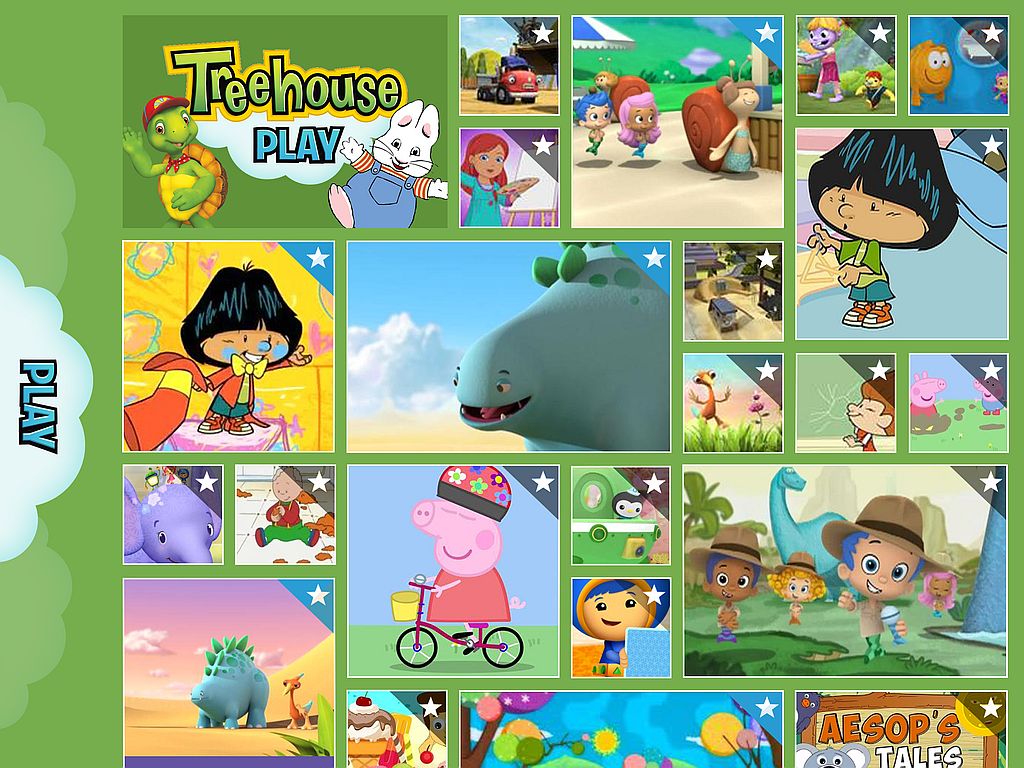As the global market for mobile game powers to greater heights, one demographic has been harder to reach — preschoolers. Kids are naturally attracted to touchscreen devices, as anyone who’s watched a child with a smartphone or tablet can attest. Building and marketing apps to children, especially preschoolers, is no easy task, though. Parents are quite naturally concerned about the content of apps their kids might be playing, and the quality of the apps, and the educational value. Plus many countries have laws and regulations concerning apps for kids that publishers need to follow closely.
Yet the massive opportunity that kids represent for publishers has not gone unnoticed. Today Canadian-based media and entertainment company Corus Entertainment announced that it has partnered with Fingerprint, the San Francisco-based mobile technology company, to create a mobile entertainment platform for kids aged two to seven. Set to launch globally in 2015, the platform will offer preschoolers a safe, fun and branded environment to enjoy videos, games, music and eBooks featuring their favorite Nelvana characters Max & Ruby, Little Bear, Franklin, The Berenstain Bears and more.
“We’re thrilled to partner with Fingerprint to develop our first global digital offering for kids,” said Colin Bohm, Vice President, Television, Head of Corus Kids. “Leveraging Fingerprint’s expertise to create compelling and fun mobile applications for children will enable our Nelvana brands to be enjoyed by even more kids in multiple languages and territories around the world.” In 2012 and 2014 Corus invested in Fingerprint as part of Corus’ strategy to expand into new markets and unlock additional value in Nelvana’s rich library of branded content.

Fingerprint CEO Nancy MacIntyre
“It’s been our dream to bring Corus’ family of great brands to life on mobile devices,” said Nancy MacIntyre, CEO of Fingerprint. “By creating this new platform, families will have peace of mind as they encourage their children to experience favourite brands on the family’s personal mobile devices. After all, mobile is where people of all ages are spending their time. Corus will expand its brands via mobile and further grow its fans.”
The deal brought an approving nod from industry analysts. “Investing in mobile is imperative for media companies to expand their brands,” says Wedbush Securities digital media analyst, Michael Pachter. “71% of families with young children have smart phones according to the NPD, and children are using those phones for entertainment. By bringing the popular Corus brands to mobile with Fingerprint, the affinity children have to those brands will grow exponentially.”
The [a]listdaily reached out to Fingerprint CEO Nancy MacIntyre to talk to her about the growing business of bringing brands and education to kids on mobile devices.
[a]listdaily: The educational software market, focused on kids, rose to about a billion dollar segment in the 1990’s before it shrank. Are we finally seeing the rebirth of a significant software market for kids, this time on mobile platforms
Nancy MacIntyre: Yes, all the studies show we are in a place, especially in the US, where 2/3rd of kids have access to mobile devices and that six — 12 year olds often have their own. We don’t see that changing and it is dynamic and very natural for children these days. Digital media is what they know and how they learn and enjoy entertainment and educational fun.
[a]listdaily: Is there a sharp line between education and fun for kids on mobile platforms, or is it all blended together
Nancy MacIntyre: Mobile is not different, really, than any other gaming platform. Kids need to be engaged first, so it is about providing an experience that draws them in and holds their attention, and that can be in entertainment, education or a blend of the two. The guiding principle for mobile is that whatever the experience, it must be engaging first and foremost or the rest is moot and time won’t be spent to get the educational value of the product. This applies to adults and other content as well.
[a]listdaily: How can parents find the right software for their kids, and make sure they aren’t going to be surprised by purchases their kids make
Nancy MacIntyre: There are four basic recommendations that can help parents make the right software choices for their families and not be surprised by kids buying things they shouldn’t, or racking up bills.
- There are many resources available to parents, especially that come in the form of reviews providing a great perspective on a game or app. There are a lot of great blogs that cover kids software, but we also like the reliable and respected source Common Sense Media. They do a great job of recommending products of good quality, that are educational and have strong play value.
- Parents talking to other parents is huge. Tried and true recommendations are a great place to start.
- Trusted curated networks like what Fingerprint offers takes the guesswork out of the hunt and peck in other voluminous app stores. As we grow, many other networks we power are great resources whether through Sylvan, Samsung, and new efforts with companies like global Corus Entertainment, which has amazing and beloved characters and brands.
- It sounds basic but passwords are essential including keeping them private from your young kids who can unknowingly purchase items. Also, kids are smart. Make sure your household has clear guidelines on what they can and can’t purchase.
[a]listdaily: We’re starting to see full-on console games for kids coming to mobile with the same features, such as Skylanders: Trap Team and Disney Infinity 2.0. How will this affect the market for kid’s software on mobile
Nancy MacIntyre: I think having great, immersive mobile games for kids from big publishers that are comparable in quality to console is a huge positive. It not only expands the business but shows what kind of great experiences can be had on mobile today.
[a]listdaily: Minecraft has been a huge hit with kids. Will we be seeing more creative, build-your-own-thing type software on mobile designed for younger kids
Nancy MacIntyre: I think the build-your-own movement will grow, yes. In fact, Maker is very alive and well in empowering creativity. From encouraging Little Makers to take initiative, be confident inspired, to older kids showing them what is possible, it’s a whole lot of fun to see and be part of.
[a]listdaily: When you talk about Fingerprint becoming a Netflix for parents looking for kid’s apps, does that mean a subscription model rather than premium or freemium apps
Nancy MacIntyre: Three things:
- I liken Fingerprint to a Netflix for mobile content for kids in learning and play. It is an easy way to describe it and its value.
- Fingerprint and networks powered by us means curated and trusted products offered up and selected for you and your kids. Makes it really easy.
- Fingerprint products come in many models, subscription only being one.
 Marcus Gners, COO of Lifesum
Marcus Gners, COO of Lifesum
 Fingerprint CEO Nancy MacIntyre
Fingerprint CEO Nancy MacIntyre

